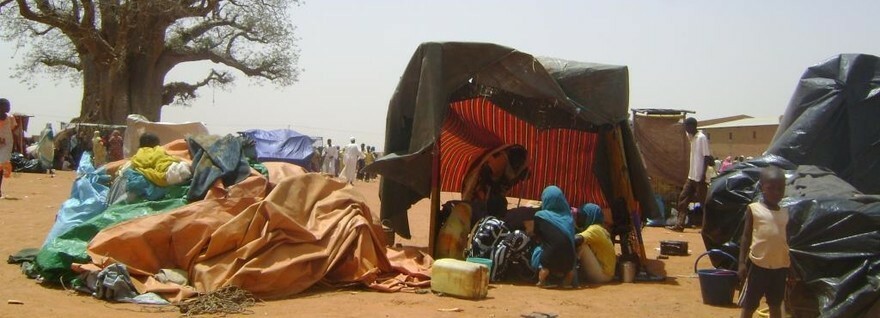Conflict-displaced persons in Babanusa, West Kordofan State, have complained over deteriorating humanitarian conditions at the Um-Jack IDP centre.
Speaking to Radio Tamazuj on Friday, several displaced individuals cited an acute shortage of food and shelter materials in the village. They also complained of worsening living conditions in the village due to a lack of water, food, and shelter.
Amira Abdo, one of the displaced persons, said she fled the city of Babanusa to the village of Um-Jack under dire circumstances without bringing along belongings or life necessities.
She said, “We live under trees; our situation is deplorable, with young children under the scorching sun and winds. We didn’t even bring sleeping mats. The existing camps can now accommodate only those who arrived in the early days of displacement.”
Amira expressed deep regret over the shortage of food supplies and shelter materials and the absence of humanitarian organizations in the area.
Another displaced person, Fatima Al-Imam, explained that they trekked long distances on foot until they reached the village of Um-Jack.
“We don’t have tents or shelter materials. So we live in the open under the sun, exposed to strong winds,” she said.
She added, “There is no food or water, and the water prices are high, and we cannot afford to buy it. The price of a jerrycan of water ranges between two hundred to three hundred Sudanese pounds.”
She continued, “We don’t have clothes because we left our clothes back home, and we don’t have any life necessities.”
For his part, Muammar Al-Qaddafi, the spokesperson for the Emergency Committee in Babanusa, said: “The sheltering houses distributed in 17 areas in West Kordofan State suffer from a severe shortage of food due to the lack of a safe route for delivering relief.”
“No relief materials have reached the sheltering houses, and everything that reaches the Emergency Room is only donations from some initiatives and people of Babanusa in diaspora,” he explained.
The Sudanese army and the Rapid Support Forces (RSF) began battling each other in mid-April last year as tensions over plans for a new political transition.
The number of people displaced by conflict since 15 April inside and outside of Sudan has reached 8.2 million, according to UN figures.




